8 ways the UN reform is helping to kick-start the Decade of Action
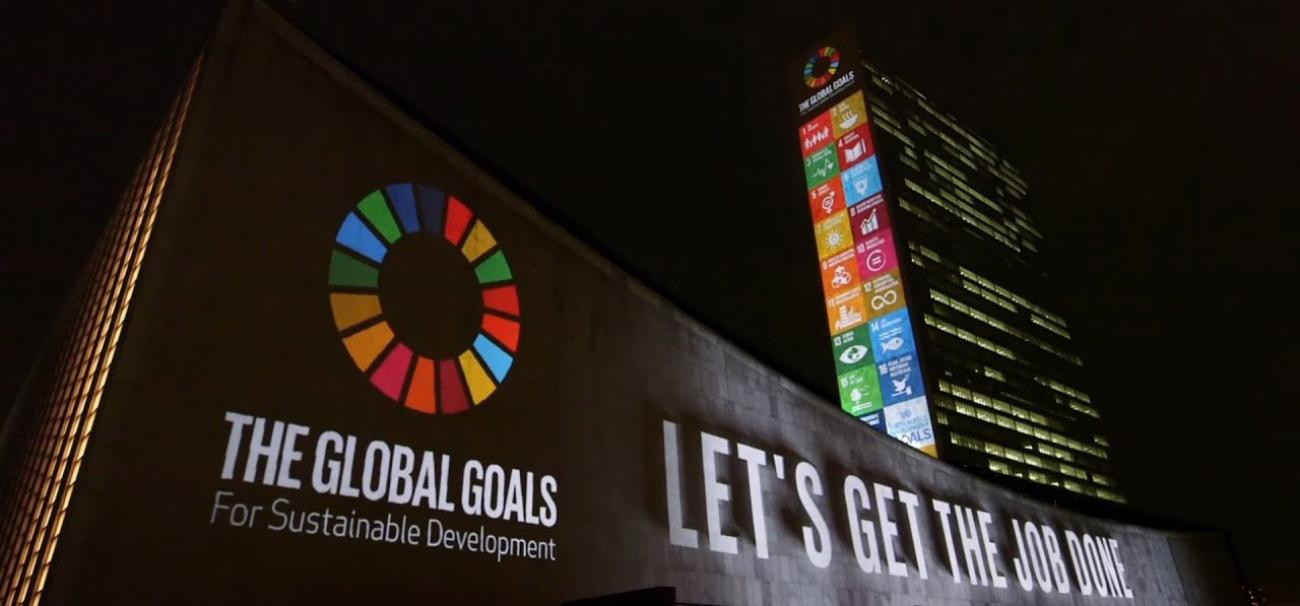
A sweeping reform transformed and strengthened the way the UN delivers on development work. One year on, check out eight ways it’s boosting our support for the Decade of Action, so countries can achieve the Sustainable Development Goals (SDGs) by 2030.
1. Better coordination and leadership on the ground
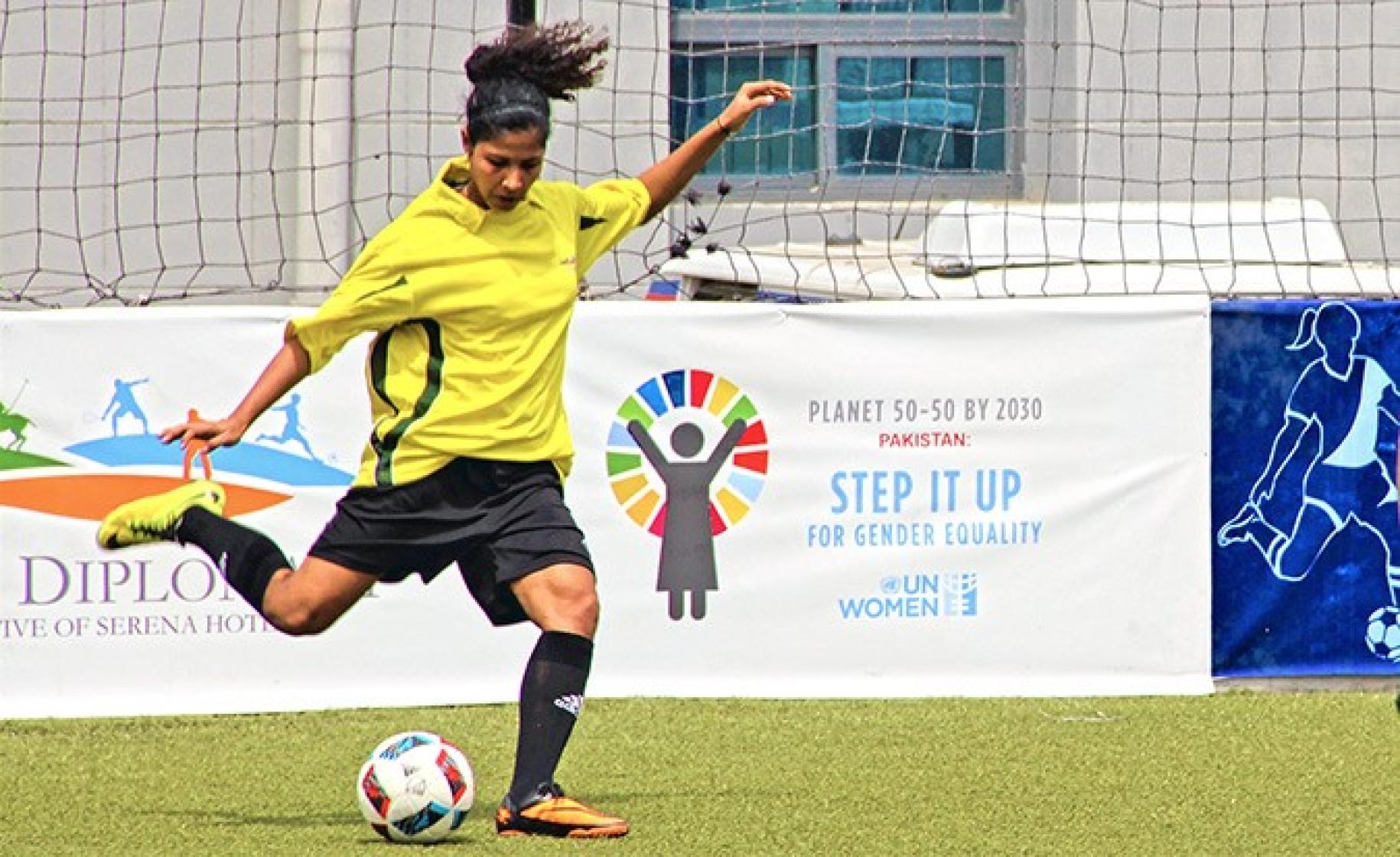
Imagine the UN family working in countries is like a football team (or soccer, if you prefer). Before the reform the UN Resident Coordinator (RC) took on the role of coach and team captain. After 2019, that changed. The RC is now only the coach, with a neutral, impartial and strategic view of the UN country team. This means the RCs are better positioned to understand the players’ (agencies, funds and programmes) abilities in the field to support countries to achieve the SDGs.
RCs are now equipped with more capacity and expertise, including experts in economics, communications, data and planning. This revamped team is better positioned to help the RC lead the work of UN agencies, funds and programmes: 129 Resident Coordinators heading 130 UN teams and covering 162 countries and territories. In addition, a new entity in the UN Secretariat–the Development Coordination Office–was created a year ago and is providing oversight and support to the strengthened RC System.
2. A more effective strategy to work together for the SDGs
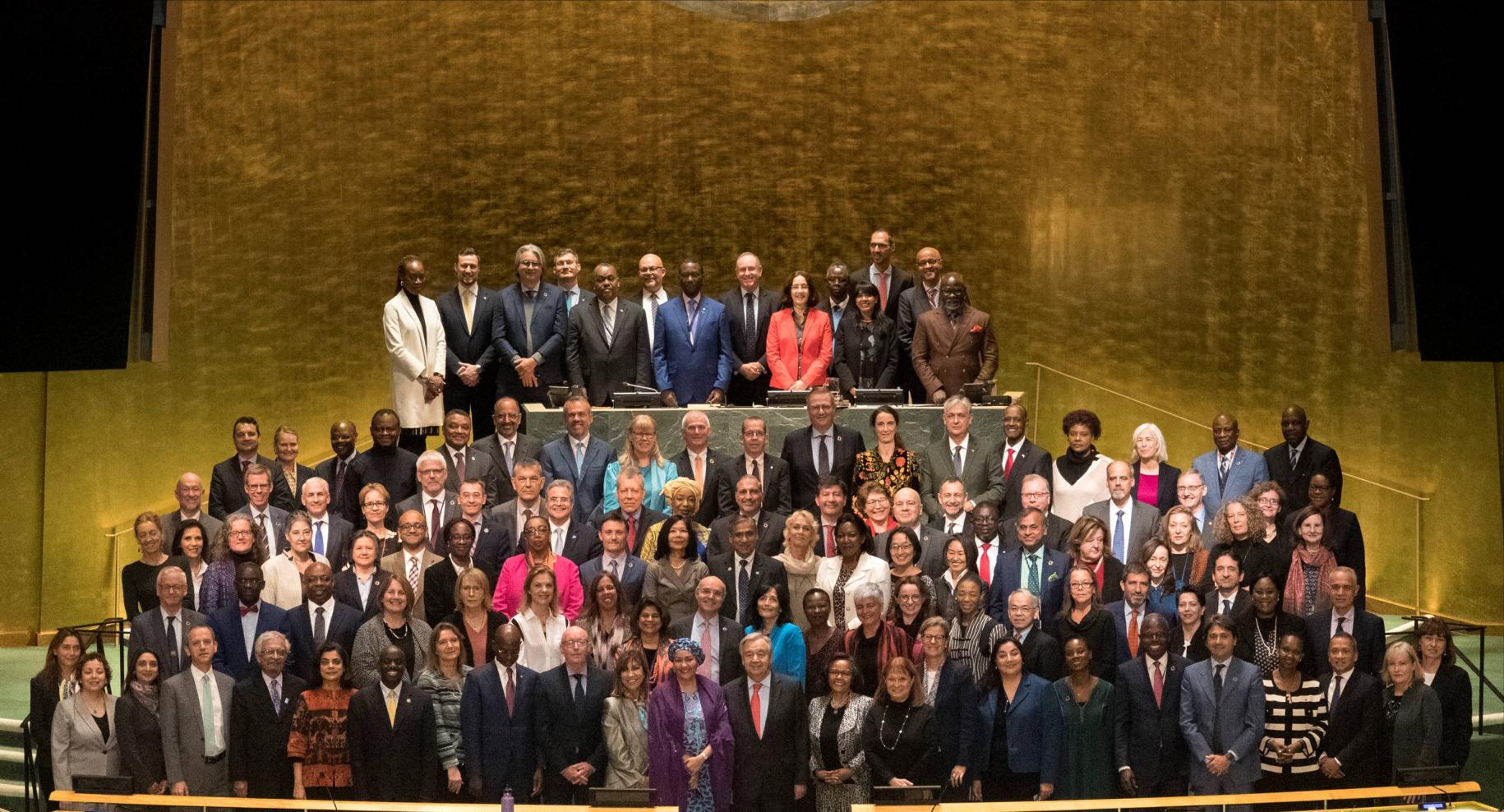
At the core of this transformation, the UN Sustainable Development Cooperation Framework (Cooperation Framework) was introduced to become the primary instrument for planning and implementation of the UN development activities nationally and locally in agreement with the host government. It ensures joint work planning, better monitoring and transparency—including through digital tools like UN INFO—helping UN teams work together to address challenges, which often transcend country borders and cannot be effectively tackled otherwise.
3. Better collaboration beyond borders
The UN’s ability to better address challenges across country borders is a key element of the UN development reform.
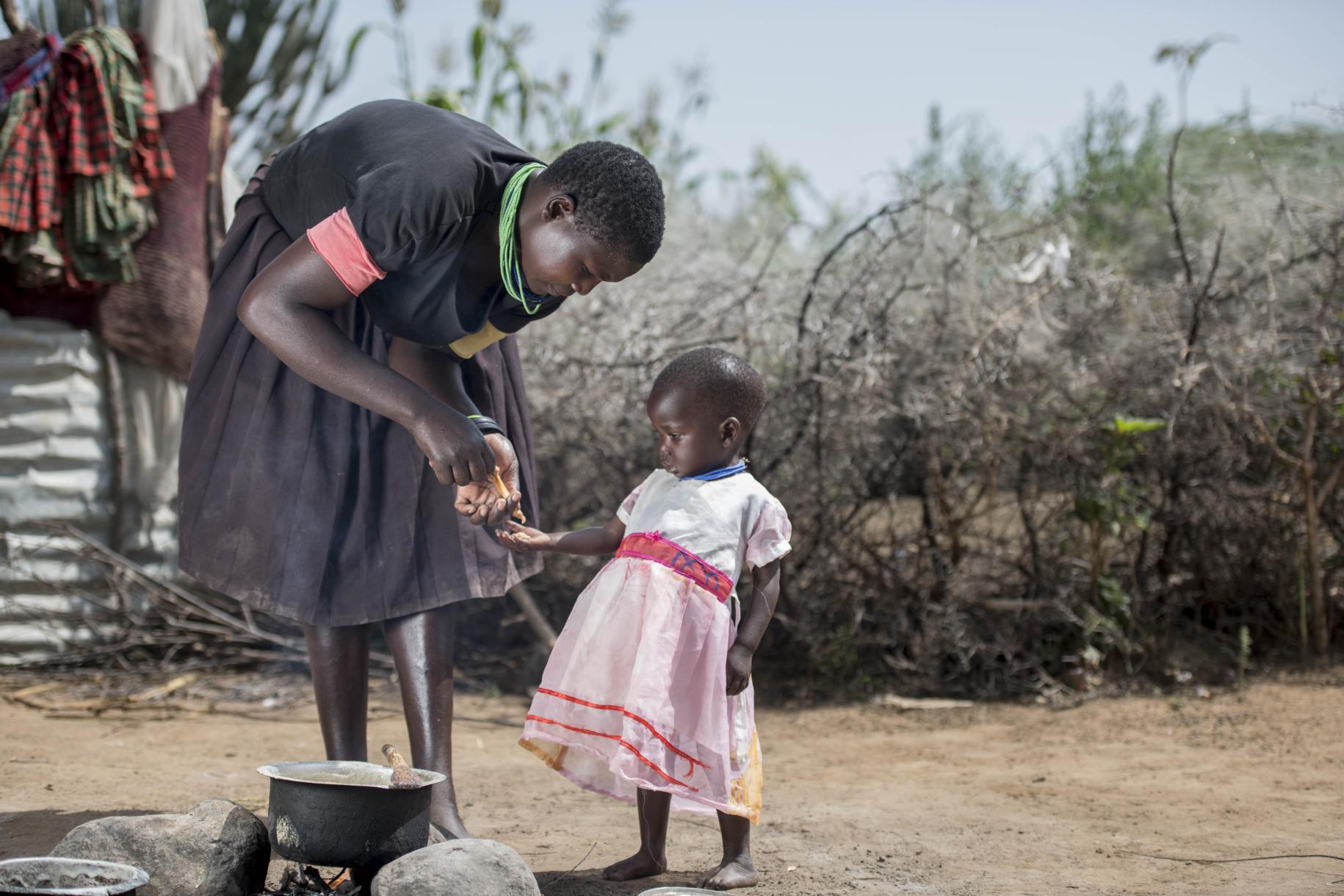
Backed by two UN country teams, the heads of state of Uganda and Kenya sealed a historic commitment in September 2019 to address challenges that transcend country borders to improve peace, stability, tackle climate change and open space to achieve the 2030 Agenda and the Sustainable Development Goals. That required over one year of joint work by both UN teams with country delegations to support a series of meetings over the course of a year.
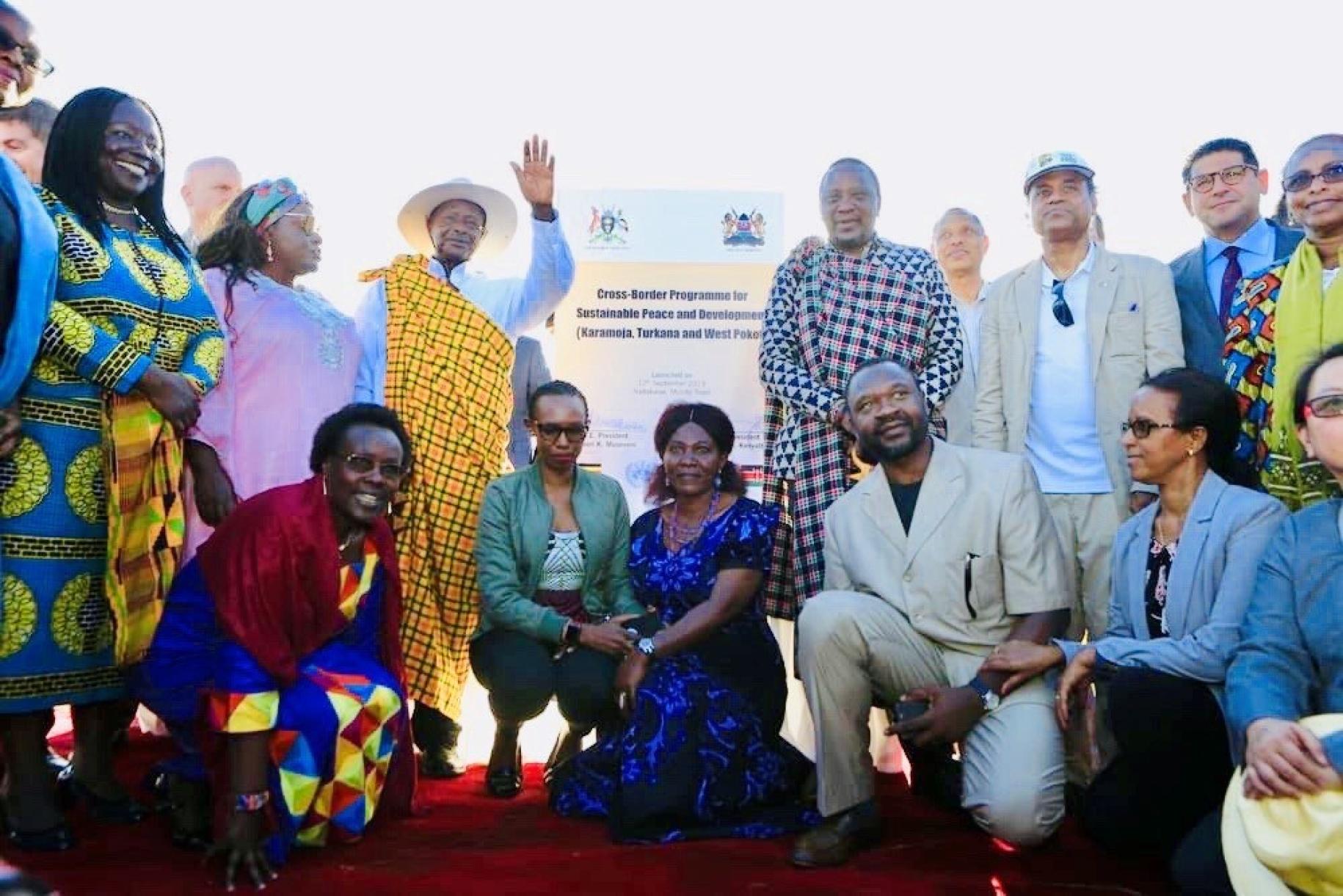
The UN teams in Benin and Togo are also taking action to address challenges that transcend country borders. Teams are working together to help alleviate poverty in all its forms, particularly among those furthest left behind, focusing on improving value chains that empower women and using technology to improve livelihoods and enhanced statistical data sharing tools developed by the UN Economic Commission for Africa, the UN Development Programme (UNDP) and the Development Coordination Office. The successful collaboration between the Benin and Togo teams takes place in preparation for their 2019-2023 Cooperation Frameworks, which will demonstrate how the countries worked systemically together for the first time.
In Latin America and the Caribbean, UN country teams in Argentina and Uruguay – upper middle-income and high-income countries respectively – are working together to address common challenges and plan their UN Sustainable Development Cooperation Frameworks for 2021-2025. Despite tremendous progress, Latin America and the Caribbean is the most unequal region in the world. To help address this, the region is focusing on more effective joint UN action to make certain no one is left behind.
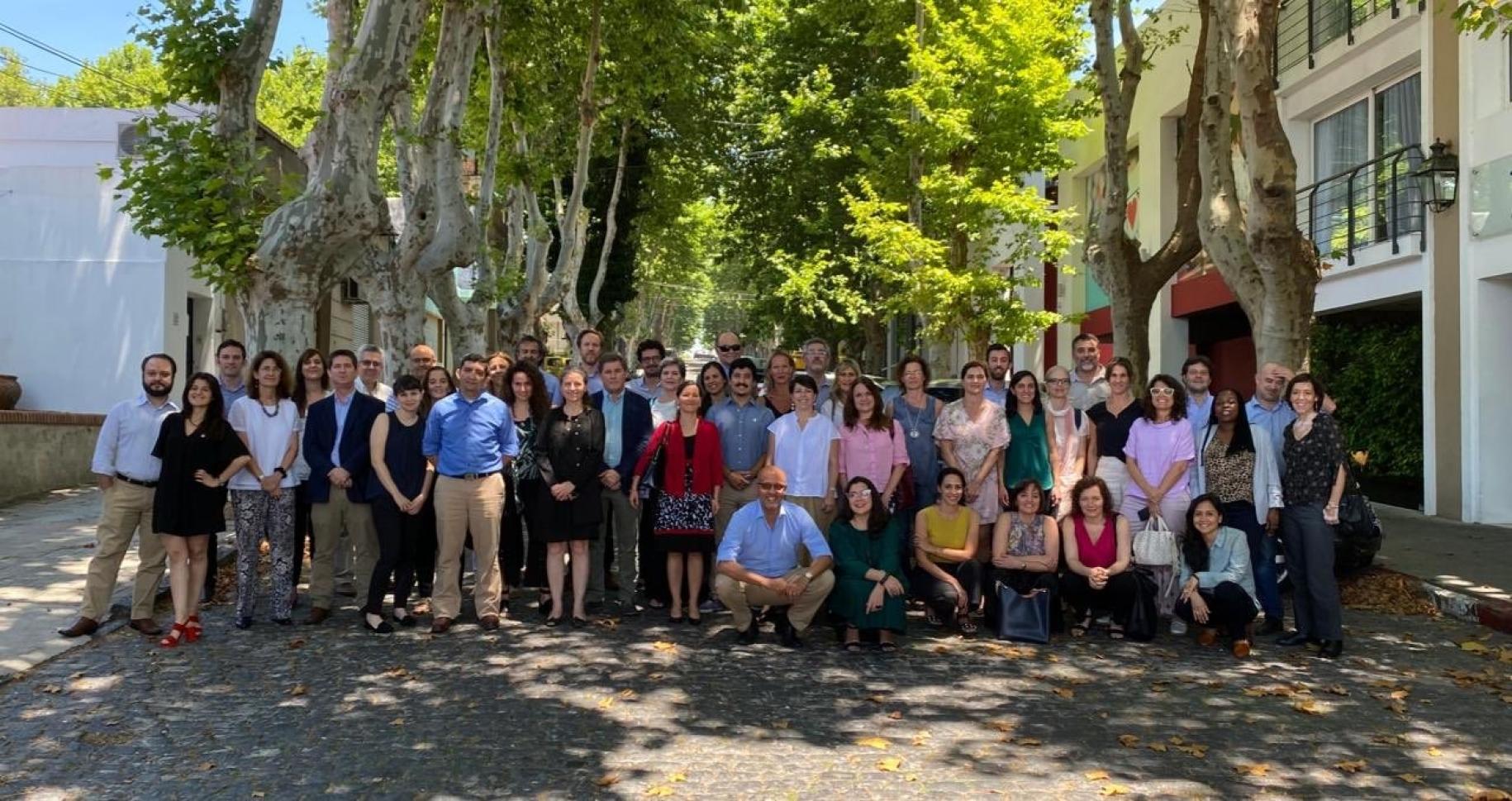
In Central America, UN country teams, along with regional offices of the United Nations development system worked with the Economic Commission for Latin America, which helped establish the basis for cross-border collaboration to effectively addresses the root causes of displacement.
4. Smarter investments for UN teams
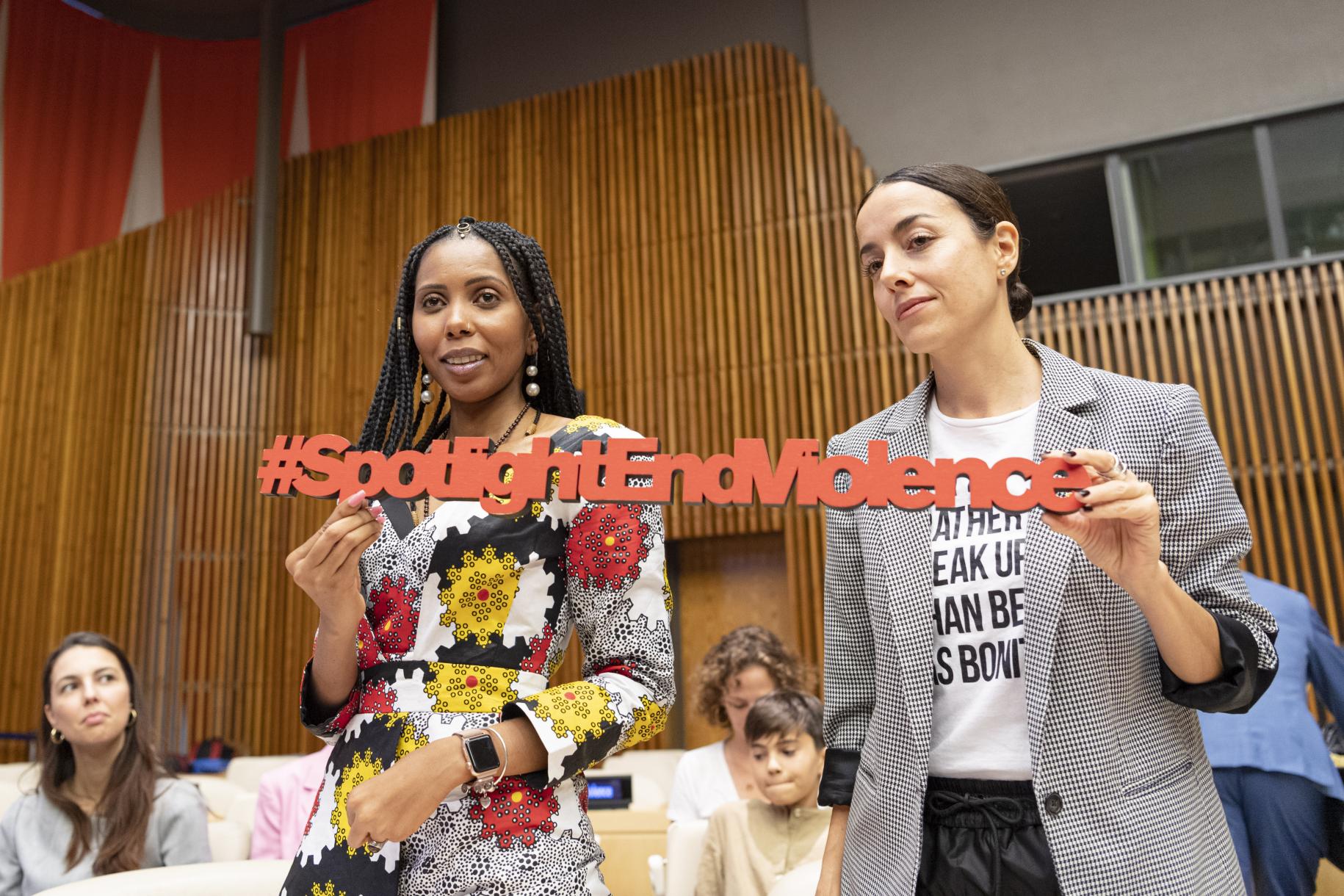
In addition to the funding mobilized for the Resident Coordinator system, there is also an increased support for partnership and funding for the 2030 Agenda. With the European Union’s catalytic funding, new investments of €122 million from the Spotlight Initiative have just been made to support the UN's work across 12 countries and programmes in the Caribbean, Central Asia and the Pacific regions to end all forms of violence against women. This complements the nearly €350m invested at the start of the year in 13 countries in Africa and Latin America.
Also, the Joint SDG Fund has mobilized US$275 million to date and launched its first two calls for proposals that will now channel US$72 million to 36 countries for joint programmes. Some 114 Resident Coordinator teams applied to the Fund’s first call, signaling great interest from across the UN development system and governments. The funds will be used jointly by agencies, funds and programmes working with national and local partners focusing on social protection for the most vulnerable and marginalized—children, adolescents, people living with disabilities and the elderly.
5. Effective support for youth
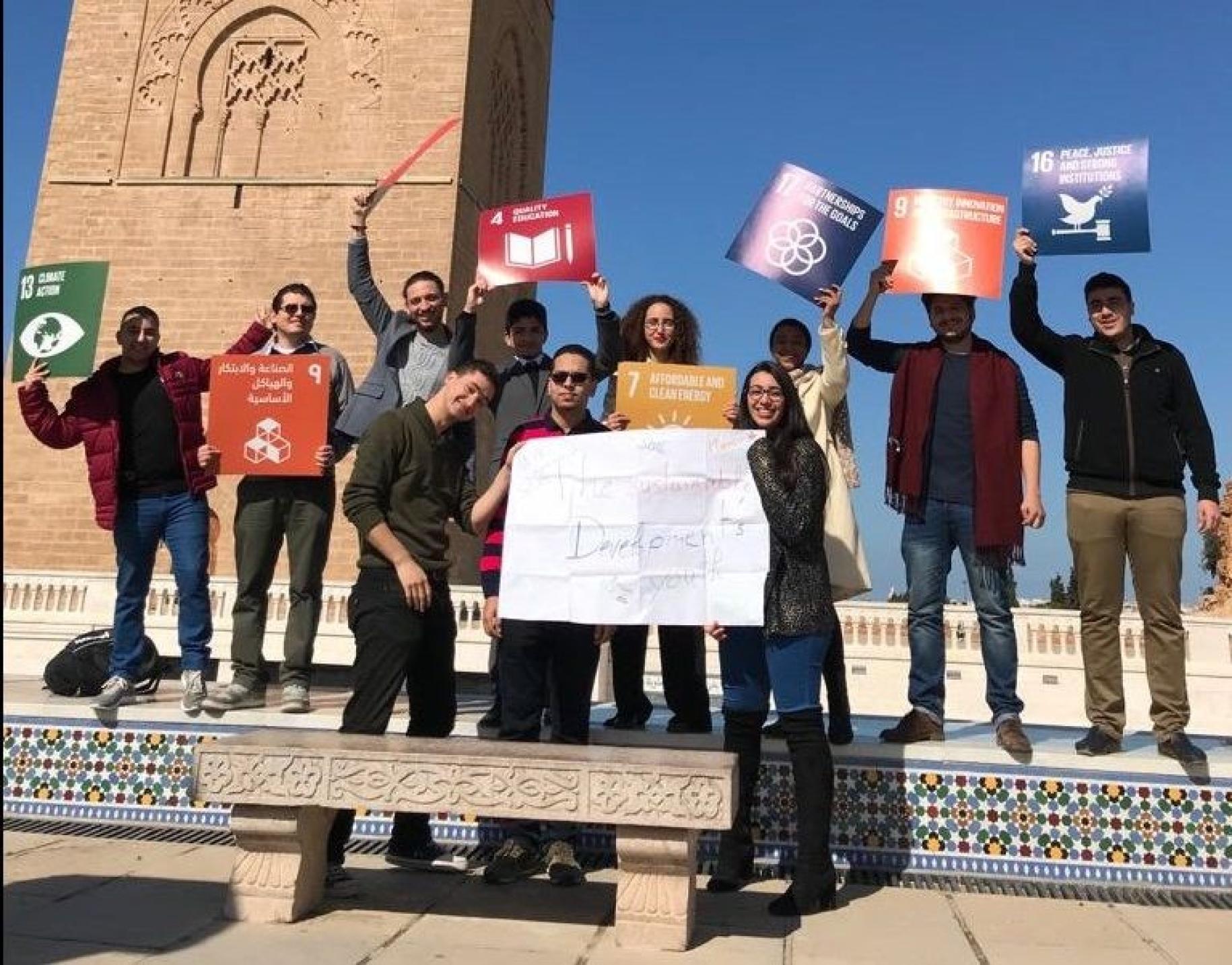
In Morocco, the Ministry of Foreign Affairs asked the UN team to come together to map all their youth activities. In an effort led by the RC office and UNESCO, with support from UNFPA, the group mapped 50 separate UN entity activities. The UN team opted for a more coherent and effective approach on youth issues focusing on four priorities that draw the best from agencies, funds and programmes’ expertise in the country.
Priority areas are aligned to the UN Strategy on Youth:
- Participation and leadership;
- Social inclusion and innovation;
- Access to quality basic services;
- Vocational training, employment and entrepreneurship and
- Peace and security.
6. Efficient work saves money
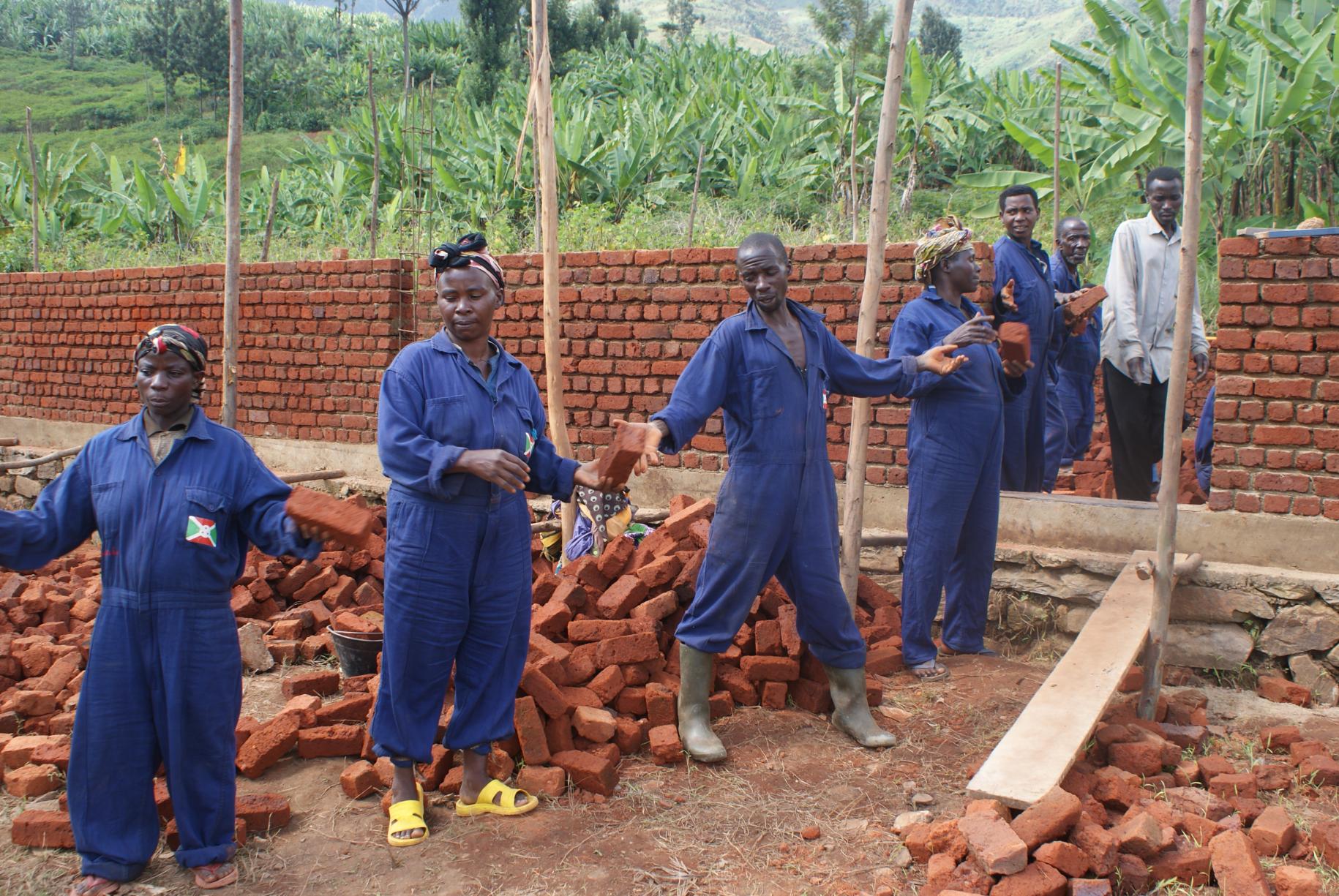
In many countries, the UN team is “moving in together” to improve the way we work – and to save money. In Tunisia, the UN team moved half of its 16 entities to a new UN house, “La Maison Bleue”, inaugurated by the Minister of Foreign Affairs and by the Secretary-General during the latter’s visit to Tunisia in March 2019. It is expected that others will join, with UNFPA and UN Habitat joining in 2020. The move to La Maison Bleue has brought about 25 per cent of immediate savings, around US$170,000 per year, in rent and common services. This is in addition to the gains of improved coordination from working closely together as one UN.
7. Coordination in a click: data viz and new global and country websites
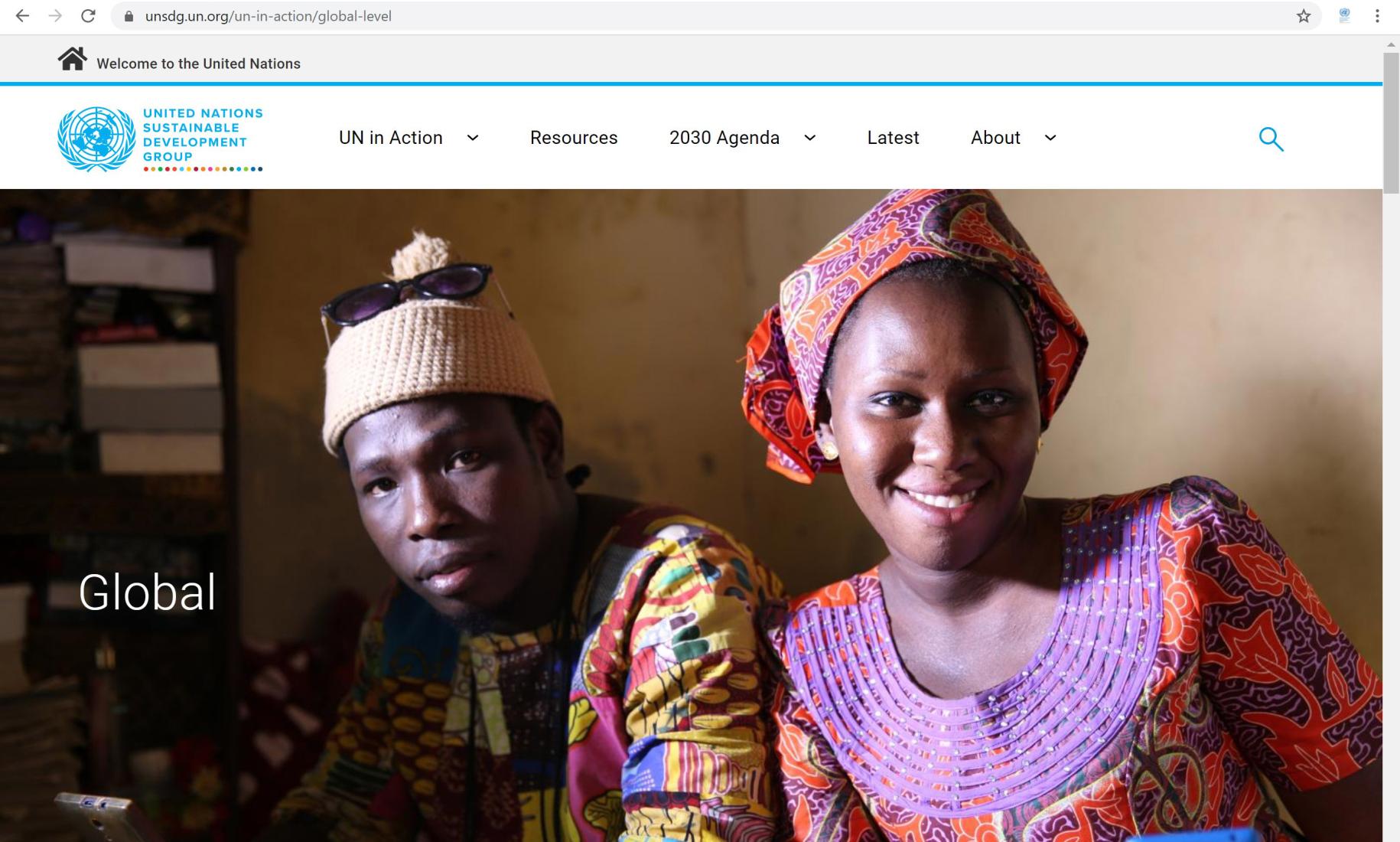
The UN Sustainable Development Group –the team of UN entities working on development at the global, regional and country levels –has a new website where users can read stories of the UN’s work on the ground and also easily find out who are the heads of agencies, funds and programmes in each country. Data is pulled automatically from systems (including UN INFO, showing which agencies, funds and programmes are working on which SDGs, where, source of funding and implementing partners). The website was launched in September 2019 in English and will be available in Spanish and French in 2020, with all official UN languages by 2021.
Also, 36 UN Country team websites were launched in 2019, also providing stories on the UN teams’ work, who is who and what we are doing around the SDGs (UN INFO-pulled information).
8. A new UN at age 75
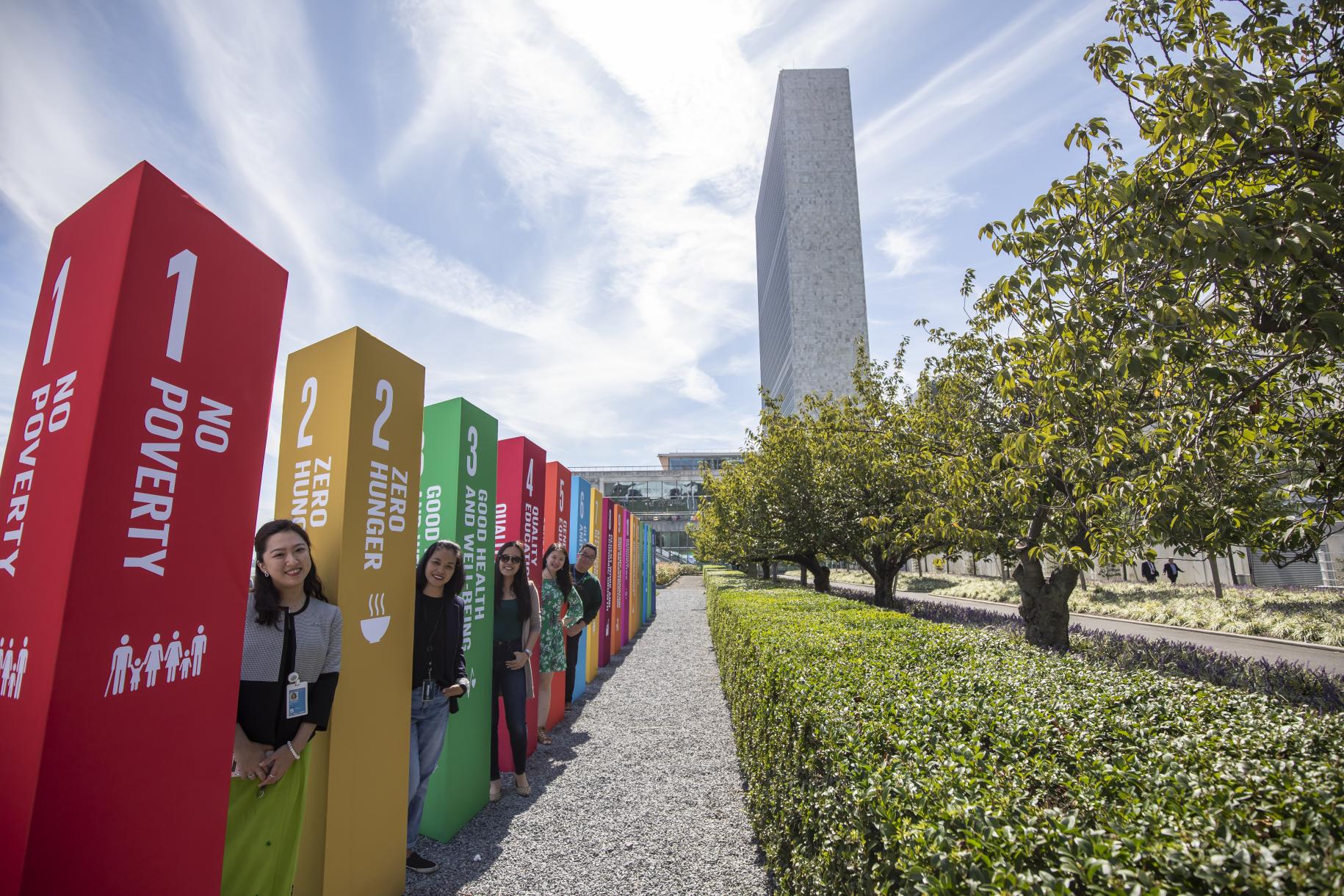
The world needs to boost efforts for the Decade of Action to achieve the SDGs by 2030. Also, in 2020 the United Nations turns 75. In 130 countries we are working better and improving our efforts to more effectively serve all people and the planet.
For example, the UN teams in Turkmenistan and Uzbekistan have begun massive consultations, reaching out to people beyond countries’ capitals. In many rural areas, the teams are listening to thousands of youth and people with disabilities as part of their Common Country Assessment for their Cooperation Frameworks. The dialogues are also part of the preparations for the UN’s 75th anniversary call to listen to all people – especially youth, on the future they want.
From Armenia to Zimbabwe, in five regions the UN teams are launching a global conversation on the role of international cooperation in building the future we want. Don’t miss out: Join our call.





































